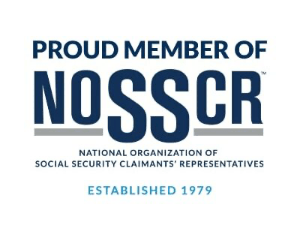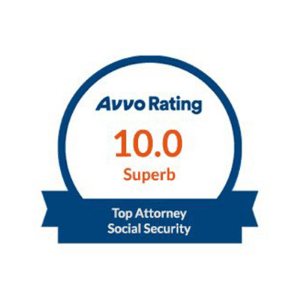The SSDI Podcast - EP4

- AUDIO TRANSCRIPT
Speaker 1 0:00
Never heard that saying, like, it’s not what you know, it’s who you know. Well, with Social Security disability, sometimes it’s not even what’s wrong with ya, right, is whether you you know worked enough recently. Yeah, so we’re going deep on the non medical requirements, okay, for SSDI and SSI, and trust me, you’ll want to know this stuff, yeah, even if you’re years away from eating it, you know, absolutely okay. So we’ve got articles research all about these programs, and our mission today is to help you figure out right. One, they’re even on your radar, right? And two, like, what hurdles you might face, yeah, besides just proving you have a disability, Okay, sounds good. Sounds great. Okay, let’s tackle SSDI first. All right, Social Security Disability Insurance. This one’s built like an insurance system.
Speaker 2 0:49
Think of it kind of like car insurance. You pay premiums, okay, and if you ever have an accident, you expect the insurance to kick in with SSDI, your premiums are the Social Security taxes you see on your paychecks,
Speaker 1 1:01
those pesky FICA deductions, yeah, but Wait, does that mean if you’ve never had a real job, uh huh, or you’re like, say, an artist who mostly gets paid like under the table, right? You’re out of luck.
Speaker 2 1:16
Well, not necessarily. It all comes down to work credits. Every time you earn a certain amount, you get a credit up to four per year. You can check your Social Security statement online and see how many you’ve racked up. So
Speaker 1 1:30
you need a certain number of these credits to qualify. Yes, how many are we talking for
Speaker 2 1:35
anyone 31 or older, the magic number is 20 credits earned within the last 10 years. This ensures you’ve consistently contributed to the system. Okay? Now for those under 31 the number goes down with specific rules for people disabled before 24
Speaker 1 1:52
Hold on. I read somewhere that work credits earned before you turn 21 right? Don’t really count. Yeah, that’s the deal with that.
Speaker 2 1:59
That’s right, those early work credits usually don’t factor in. The logic is, SSDI is designed to replace income you’ve recently lost, okay, due to disability, yeah. So the focus is on your more established work history.
Speaker 1 2:13
Okay, so it’s not just about having enough credits overall, right? The timing matters too. Which brings us to this recent work test I keep hearing about, okay? Is that just another way of saying you need those 20 credits?
Speaker 2 2:26
It’s related, but not quite the same. Okay? For those 31 and older, the recent workfest typically requires you to have worked at least five out of the 10 years before your disability began. It’s an additional way of demonstrating a consistent work history, showing that you were actively participating in the workforce. Gotcha before, your disability
Speaker 1 2:46
and I’m guessing as before, this varies for folks under 31 Yes, but what about situations where someone had to leave the workforce for a while, right to care for a family member? Yeah, or they had a serious illness themselves, do those years just count against them?
Speaker 2 3:03
Those are great questions. And honestly, this is where things can get complicated. There are exceptions to the rules, right? And it really depends on your specific circumstances. Okay, what’s fascinating here is that the SSA looks at not just the amount of time you worked, yeah, but also the type of work you did and how much you earned. Okay, they’re trying to paint a picture of your overall work life. Wow.
Speaker 1 3:24
Okay, so we’re starting to see how this can get tricky fast. Yeah. What else should we know about SSDI before we move on?
Speaker 2 3:31
Well, there are a couple other requirements, like citizenship right or legal residency in the US. It’s about ensuring the program is available to those who are legally authorized to work and live in the country,
Speaker 1 3:43
speaking of residency that ties into something that surprised me, okay, US citizens can actually receive SSDI, yes, even if they live outside the US. It’s
Speaker 2 3:53
true. Really, the benefits can follow you, though, there are some exceptions and additional rules depending on the country, okay?
Speaker 1 4:01
And the last SSDI requirement I have here is that your disability has to have started right before you reach retirement age. Makes sense? Yes, otherwise, you just switch to regular retirement benefits
Speaker 2 4:13
Exactly. And you know, that actually leads into something a lot of people don’t realize.
Speaker 1 4:17
Oh, tell me more. This is where it gets interesting. You can
Speaker 2 4:21
actually apply for SSDI even if you’re already receiving early retirement benefits. And if you’re approved, the Social Security Administration will reimburse you for the difference. Wait,
Speaker 1 4:33
really so you could potentially get a bigger monthly check. That’s a game changer. I bet a lot of people miss out on that just because they don’t know about
Speaker 2 4:41
it. It happens more often than you’d think, and the SSA even has a handy retirement age calculator on their website to help you figure all that out. Oh, it’s definitely worth checking out if you’re in that situation.
Speaker 1 4:51
Okay, so we’ve covered SSDI pretty thoroughly, the work credits, the recent work test, the residency requirements and the whole. Retirement age thing right? Now, let’s switch gears to SSI, which, as we mentioned earlier, okay, is a completely different beast. This one’s not tied to your work history at
Speaker 2 5:08
all, right? SSI, Supplemental Security Income, okay? Is a needs based program, okay? It’s designed to help people who have very limited income and resources, right, regardless of how much they’ve worked. So
Speaker 1 5:21
for someone who’s never been able to hold down a steady job, yeah, maybe due to a disability they’ve had since childhood, right? SSI might be their only option, exactly.
Speaker 2 5:29
It acts as a safety net for those who are truly struggling to make ends meet, but that also means the eligibility requirements are incredibly strict. Okay, we’re talking about needing to fall below certain income and asset limits, right?
Speaker 1 5:42
And I remember seeing some shockingly low numbers when I was researching this, uh huh, something like a $2,000 limit. For individuals, you’ve
Speaker 2 5:50
got a good memory that’s right. For individuals, your countable resources can’t exceed $2,000 and for couples, it’s $3,000 okay? And it’s important to understand what they mean by resources, yeah,
Speaker 1 6:03
because most people probably think of resources as just cash in the bank. That’s
Speaker 2 6:07
part of it, of course, but it also includes things like stocks, bonds, savings accounts, vehicles, even property you own, basically anything that could be converted to cash and used to support yourself.
Speaker 1 6:21
So if you’ve got a paid off car, some family heirlooms and a little bit of money saved up for emergencies, you might already be over the limit. It’s
Speaker 2 6:30
definitely possible, but there are some key exemptions. Your primary residence, for example, doesn’t count towards the resource limit, and neither does one vehicle used for transportation makes sense. Those are considered essential for daily living,
Speaker 1 6:42
but still, we’re talking about very narrow margins here, right? It really underscores how SSI is intended for those with the most dire financial need.
Speaker 2 6:51
That’s exactly right. It’s not meant to be a catch all solution, but rather a targeted program for those who are truly falling through the cracks. Okay,
Speaker 1 6:59
so we’ve got the income and resource limits. What other non medical hurdles do people need to be aware of when it comes to SSI? Well, as
Speaker 2 7:07
with SSDI, citizenship or legal residency in the United States is a requirement. It’s all about making sure the program is serving those who are legally entitled to be in the country right.
Speaker 1 7:17
And just like with SSDI, I was surprised to learn that there are situations where non citizens can qualify for SSI. It’s not as black and white as you might
Speaker 2 7:27
think. That’s a really important point. There are specific categories of non citizens who can be eligible, often based on humanitarian or legal statuses granted by the Department of Homeland Security, for example, refugees asylees and certain victims of trafficking or domestic violence might qualify. Wow. It really highlights the complexities of the immigration system and how it intersects with social safety net programs like SSI. So
Speaker 1 7:51
it’s clear that both SSDI and SSI have some pretty specific and often surprising, non medical requirements you need to be aware of. And I’m guessing for a lot of people just figuring out which program they might even qualify for, right? Is the first major hurdle. Absolutely,
Speaker 2 8:06
it’s easy to get lost in the weeds with all these rules and regulations, and unfortunately, many people don’t even realize these non medical factors exist until it’s too late, right?
Speaker 1 8:15
You could have the most legitimate disability in the world, but if you haven’t worked enough recently where your assets are just slightly above the limit, you could be denied benefits. It’s almost like a hidden obstacle course.
Speaker 2 8:28
That’s a great analogy, and that’s precisely why we’re doing this deep dive, to shed light on these often overlooked aspects of the disability benefits process.
Speaker 1 8:36
Exactly we want to empower you, the listener, with the knowledge you need to navigate this system effectively, because
Speaker 2 8:43
knowing your options and understanding the potential pitfalls is the first step towards getting the support you deserve. So
Speaker 1 8:50
to recap, with SSDI, we’re looking at work credits or recent work history and being a US citizen or legal resident. The specific rules can vary depending on your age and individual circumstances, but those are the main pillars.
Speaker 2 9:05
And for SSI, the focus shifts to your financial need. You have to meet strict income and asset limits with some exceptions for essential things like your home and vehicle, right and again, citizenship or certain designated legal statuses come into play.
Speaker 1 9:20
But even if you tick all those boxes, remember, we’ve only just scratched the surface here, there’s a whole other layer of complexity when it comes to the medical requirements for disability benefits, and that’s
Speaker 2 9:31
a topic for another deep dive, perhaps. But for now, you’ve got a followed foundation to start from
Speaker 1 9:36
exactly you now understand that qualifying for disability benefits is not just about proving you have a disability, it’s about meeting a whole set of criteria that could feel, frankly, a bit overwhelming,
Speaker 2 9:48
but don’t let that discourage you. Knowledge is power, right? And now that you’re armed with this information, you can start to plan accordingly, whether that means making sure you’re earning enough work credits, taking steps to reduce your countable. Resources, or simply being aware of the potential challenges you might face. You’re ahead of the game,
Speaker 1 10:06
absolutely. And if this deep dive has sparked your curiosity, I encourage you to do some more research. Yeah, the Social Security Administration website is a great resource, and there are countless organizations and advocacy groups out there dedicated to helping people navigate the disability benefits process.
Speaker 2 10:23
Don’t be afraid to reach out for help and support. It’s a complex system, and there’s no shame in needing guidance.
Speaker 1 10:28
Okay, so before we wrap things up, I wanted to leave you with one final thought. Yeah, imagine you do meet all these non medical requirements. You’re all set, right, right? Yeah, not so fast. Well, what many people don’t realize is that proving your disability to the SSAS satisfaction is a process. It’s not
Speaker 2 10:46
just about having a diagnosis. The SSA has very specific criteria for what they consider a disabling condition, and they require extensive documentation to back it up.
Speaker 1 10:56
Oh, wow. Think medical records, test results, treatment notes, yeah, the whole nine yards. And I
Speaker 2 11:03
bet those medical requirements are just as complex and nuanced as the non medical ones we’ve been discussing. Oh,
Speaker 1 11:08
absolutely, yeah. It’s a whole other rabbit hole. And honestly, it could be its own Deep Dive. Maybe
Speaker 2 11:13
we’ll do that next time. Yeah, but for now, our listener is hopefully walking away with a much clearer understanding of what it really takes to qualify for disability benefits, right? It’s not just about being sick or injured. It’s about meeting a complex set of requirements, both medical and non medical, that can trip up even the most well prepared applicant. It’s true. So what’s our final takeaway for our listeners today?
Speaker 1 11:39
I think the biggest takeaway here is to be proactive. Okay, if you think you might need to apply for disability benefits someday, don’t wait until you’re in crisis mode. Start gathering your documentation now. Okay, familiarize yourself with the rules, and most importantly, don’t be afraid to ask for help.
Speaker 11:58
That’s such great advice. There
Speaker 1 11:59
are resources available, both from the Social Security Administration itself, right, and from various advocacy groups to help you understand the process and make sure you’re putting your best foot forward Exactly.
Speaker 12:09
Yeah, you don’t have to navigate this alone. Well said, thank you.
Speaker 1 12:14
And on that note, we’ll wrap up this deep dive into the non medical requirements for Social Security Disability benefits, right? We hope you found it informative and empowering. Yeah. Remember, knowledge is power Absolutely. And the more you understand about this complex system, the better equipped you’ll be to advocate for your yourself and your future Exactly. Thanks for joining us. Of course, we’ll see you next time you
- Disclaimer: this podcast has been generated with the help of an Artificial Intelligence and is based on blog posts written by LaPorte Law Firm Disability expert attorneys. You can read all our latest blog posts here.

Helping clients win their cases for over 40 years
LaPorte Law Firm has been representing Social Security Disability claimants in the Bay Area since 1982. Since starting his practice specializing in Social Security Disability claims, Terry LaPorte has successfully represented thousands of disability claimants, with LaPorte Law Firm opening offices in San Jose, Oakland, San Francisco, Santa Cruz, Burlingame, Sacramento, and Hawaii.
We are a full-service law firm providing expert legal representation at all stages of the Social Security Disability benefits process. As a local law firm mainly servicing the Bay Area, we are familiar with the administrative judges at the San Jose, San Francisco, and Oakland hearing offices, as well as the staff at local Social Security field and hearing offices. In addition, with this being a federal area of law, we also represent clients all over the country.
Meet our attorneys
Our team of ethical, professional, and dedicated lawyers are the cornerstone of our success.

Terry LaPorte
Attorney

Kevin LaPorte
Attorney

Kelsey LaPorte
Attorney

Maria Miranda-Hammon
Legal Representative
How it works:
- Complete the form so we can learn more about your situation.
- We will reach out within 48 hours to schedule your free, no-obligation consultation with an attorney.
- If your case can be pursued, we’ll start working on it.
- We only get paid if your case is approved.
How we can help:
- Free case evaluation by an attorney
- Social Security Disability Insurance application
- Social Security Disability Insurance appeal
- Disability hearing preparation
NO FEES UNLESS YOU WIN.
Award-winning service
Equipped with years of experience and thousands of successful cases, LaPorte Law Firm is the leading disability attorney in the Bay Area, and we have the awards and certifications to prove it.














